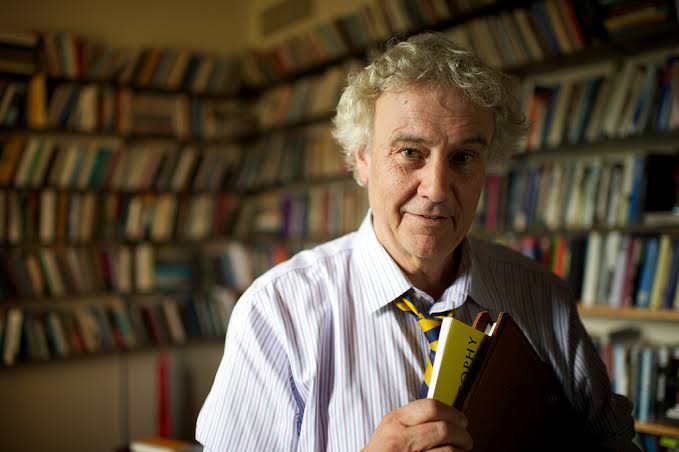
Tehran Book Fair is as prestigious as book fairs in Paris, Istanbul and elsewhere
1402/02/23-12:01
Charles Taliaferro, an emeritus professor of philosophy at St. Olaf College says the Tehran Book Fair is as prestigious as book fairs in Paris, Istanbul and elsewhere.
According to the news headquarters of the 34th Tehran International Book Fair, a meaning of cultural diplomacy has been introduced as bargaining to reach goals that unite human societies. Achieving these goals is based on common cultural factors between societies. As a rule, countries with a richer culture will have the ability to absorb more. “Book” is an important factor and medium in the dialogue between cultures, and the publishing industry of any country with a long and rich cultural history is a place for these dialogues.
Tehran International Book Fair, which we are on the verge of its 34th period, can be considered an important factor in cultural diplomacy because it is the result of Iran's rich publishing industry. For this reason, the news staff of this period of the exhibition decided to ask about the Tehran International Book Fair in a conversation with some of the world's great intellectuals and scholars, and it can be said that the goodness of these conversations is the introduction of this fair to these thinkers.
In this respect, Charles Taliaferro, an emeritus professor of philosophy at St. Olaf College, a senior research fellow at the Institute for Faithful Research, and a member of the Royal Institute of Philosophy says “By showcasing a splendid array of books, Iran may recall its role in the Golden Age of Islam.”
Following is the full text of the interview:
Q: Are you familiar with Tehran Book Fair? If your answer is yes, how did you get to know it? If you are not familiar with it, how can Tehran Book Fair be included in the cultural calendar of the world?
A: Starting in the late 20th century, books, and thus Book Fairs, have had to adjust to what used to be referred to as HCI --Human-Computer Interaction. Books, as printed objects, continue to be valuable, even absolutely essential objects in regions without wifi access. But in regions that are well served in terms of the web, books can be accessed with extraordinary speed and scope. The Tehran Book Fair is as prestigious as book fairs in Paris, Istanbul and elsewhere. Still, physical books need now offer significant elements ----high quality print, reproductions,and more-- to compete with their virtual counterparts.
Q: In general, what is the position of the book as a cultural commodity in cultural diplomacy?
A: I believe the book still retains prestige. The Prime Minister of Great Britain is sworn in by placing his hand on a book, as is the President of the United State. Burning a book can still cause outrage. In the ancient and medieval European world, the wealth of a city or individual was sometimes measured by the number and quality of books. Libraries in the modern era have been of extraordinary significance in the spread of knowledge and cultivating public stewardship of shared resources.
Q: Every year, cultural events in Iran begin with the Tehran Book Fair, and many people participate in it, and the entire cultural and artistic currents in Iran are somehow related to this exhibition. To what extent can such an exhibition represent the contemporary culture of Iran by reflecting in the media?
A: By showcasing a splendid array of books, Iran may recall its role in the Golden Age of Islam. The end or rupture of that age of great learning in the 13th century was the destruction of books in the siege of Baghdad. The more a people can celebrate its great production of books, the more it promotes literacy and an educated public that enriches a republic.
Q: If we assume that you are planning to visit the Tehran Book Fair this year, what is the first reason for this visit? Do the mere name of Iran and its civilizational and cultural background attract you to attend the exhibition, or is it the temptation to familiarize yourself with the books produced in Iran's publishing industry?
A: Absolutely. One of my books has been translated into Farsi, while other works are published in Arabic and Turkish. My personal library is packed with handsome volumes on art and architecture of Iran --some of them gifts from the great Iranian-American artist Siah Armajani whose artworks in the United States have enhanced respect for Iranian artists.
Q: If you want to prepare a book about the contemporary situation of Iran in the fields of culture, politics, and religion, in which countries would you rely more on the published research and prepare it?
A: I would welcome an Iranian publisher for my work in philosophy, especially to reach out to my Iranian friends and colleagues. As someone who writes in English, I have naturally been led to British and American publishing houses, but Iran can rightly claim to have promoted printed books of the highest quality. Their safeguarding from destruction has been a mission of the prestigious Hill Museum and Manuscript Library that has protected rare Persian books in the Middle East and throughout the world.
The 34th Tehran International Book Fair with the slogan “the future is to be read” started on the 10th of May and will continue until the 20th of May 2023 in the Mosque of Imam Khomeini and simultaneously on ketab.ir.



 بازگشت
بازگشت

